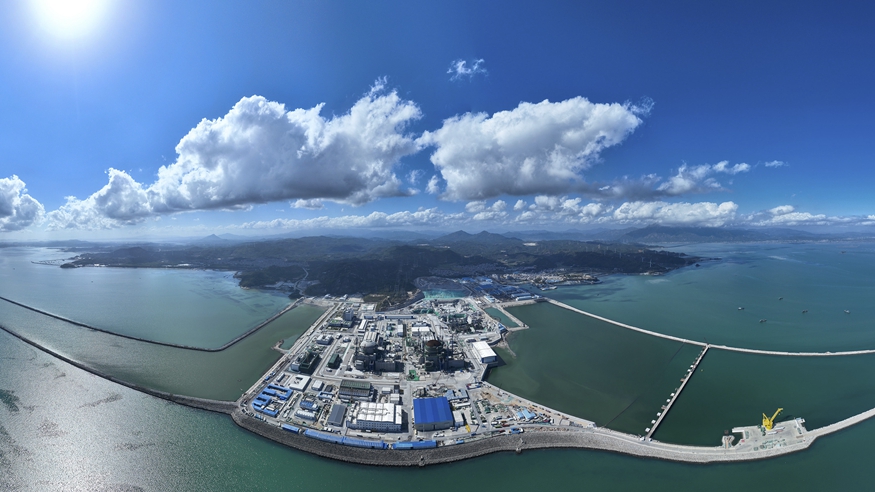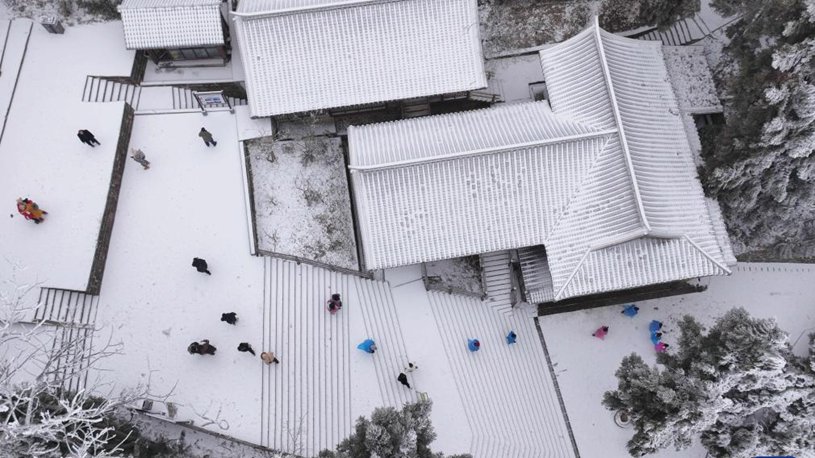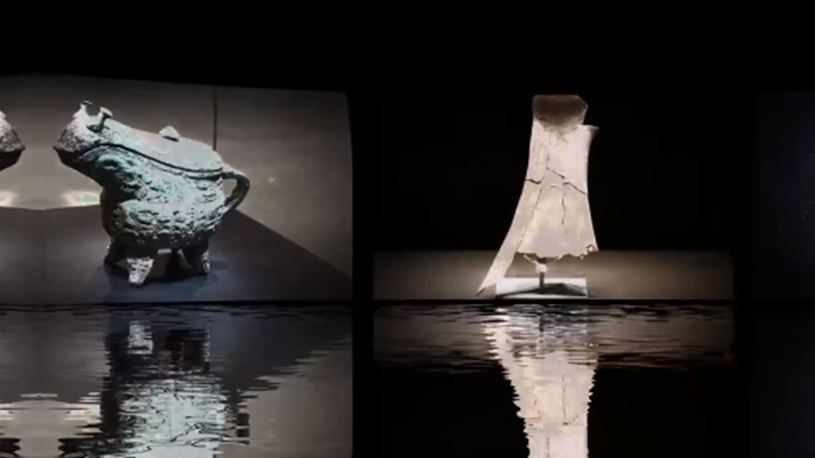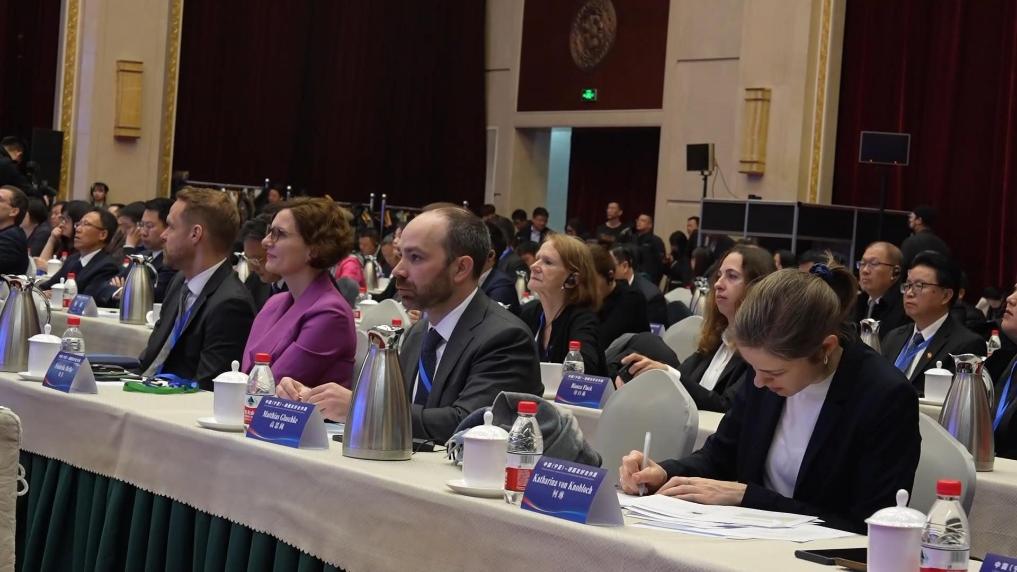* It is seemingly difficult for both sides to achieve a major breakthrough on the battlefield this year, but the intensity of the conflict may somewhat decline.
* Global attention to the Ukraine crisis has dwindled recently, and people in the West, particularly in the United States, are becoming increasingly tired of the ongoing crisis. However, the West don't want to lose this opportunity to weaken Russia, and continue to exacerbate the conflict and profit from it.
* Though support for Ukraine among Europeans remains high, some form of "compromise settlement" is seen as the most likely solution to the conflict in the survey of over 17,000 respondents by the European Council on Foreign Relations.
MOSCOW/KIEV, Feb. 24 (Xinhua) -- As the full-scale fight in Ukraine reaches its second anniversary, Russia appears to have the upper hand with the capture of Avdiivka, a strategic stronghold in the Donetsk region, leaving Kiev and its backers in an even harder situation than before.
The weariness caused by the two-year-long conflict, dubbed by some analysts as "Ukraine Fatigue," is now permeating Western nations, leading to a divided stance on providing further support to the country.
The recent Israeli-Palestinian conflict has further limited the ability of the West, particularly the United States, to focus on Ukraine.
However, the two countries, which remain committed to advancing military operations, show no signs of initiating peace talks.
BATTLEFIELD DILEMMA
In recent months, Russia and Ukraine have both focused on the strategic importance of Avdiivka, located just 20 km from Donetsk and controlled by Russian forces.
The city plays a crucial role in securing the northern front lines for the Ukrainian army in the Donetsk region.
Oleksandr Syrsky, commander-in-chief of the Ukrainian Armed Forces, said last week that Ukraine had ordered the withdrawal of troops from the frontline eastern town of Avdiivka.
"To avoid encirclement and preserve the lives and health of servicemen, I decided to withdraw our units from the city and move to defense on more favorable lines," he said.
According to Russia's Defense Ministry, Russian troops have taken full control of the town of Avdiivka.
Sean Bell, a British military analyst, said the fall of Avdiivka has given Russia its most important battlefield victory since it seized Bakhmut after months of grueling attritional warfare.
Many analysts believe the balance of war is tipping in Russia's favor but not to the point where Ukraine is at risk of a full-scale collapse.
In fact, the front lines of the conflict have barely moved since 2023 as Ukraine's mid-year offensive failed. This also holds true even after the fall of Avdiivka.
"Militarily, it's not a big loss," said Rob Bauer, chair of the NATO Military Committee, concerning the fall of Avdiivka. "They destroyed the whole infrastructure. So, you don't have a city. You have another couple of hundred meters," he said of Russia's territorial gains.
As the former commander-in-chief of the Ukrainian Armed Forces, Valerii Zaluzhnyi, said recently, the Russia-Ukraine conflict has now entered a phase characterized by stalemate and attrition.
According to analysts, it is seemingly difficult for both sides to achieve a major breakthrough on the battlefield this year, but the intensity of the conflict may somewhat decline.
Ukraine will probably switch from offensive to defensive, while Russia will also find it hard to expand its territory beyond the four areas it controls.
The upcoming U.S. and Russian presidential elections, the amount of aid Ukraine can obtain from the West, as well as the quantity of troop personnel replenishment for both will all decide the trend of the conflict.
DECLINING WESTERN AID
Admit it or not, global attention to the Ukraine crisis has dwindled recently, and people in the West, particularly in the United States, are becoming increasingly tired of the ongoing crisis.
Nearly half of the U.S. public believes the country is spending too much on Ukraine, according to a recent Gallup poll.
The U.S. election campaign has already negatively affected the delivery of more aid to Ukraine.
Currently, a 60-billion-U.S.-dollar package of aid to Ukraine is stalled in U.S. Congress by right-wing Republicans.
U.S. officials admitted that little could be done before America elects a new president.
The situation is comparably better for the Europeans, with the EU countries sealing a deal at the beginning of February to provide Ukraine with 50 billion euros (about 54 billion U.S. dollars) in support for Ukraine after Hungary dropped its veto threats.
But converting this commitment into ammunition available to frontline soldiers is still a challenge.
Even so, it seems that some Western countries don't want to lose this opportunity to weaken Russia, and continue to exacerbate the conflict and profit from it.
In the two years of the conflict, the U.S. defense industry has experienced a boom in orders for weapons and munitions, The Wall Street Journal reported recently.
Business is coming from European allies trying to beef up their military capabilities as well as from the Pentagon, which is both buying new equipment from defense manufacturers and replenishing military stocks depleted by deliveries to Ukraine, it said.
The State Department recently said the United States made more than 80 billion dollars in major arms deals in the year through September, of which about 50 billion dollars went to European allies -- more than five times the historical norm, Myles Walton, a military industry analyst at Wolfe Research, was quoted by The Wall Street Journal as saying.
At the recently closed Munich Security Conference, increasing military aid to Ukraine was still the focal topic.
Moreover, the North Atlantic Treaty Organization last month kicked off "Steadfast Defender 2024," its largest military drill in decades, which is deemed to be directed at Russia.
UNREACHABLE PEACE
The year 2023 started with high hopes for Ukrainian troops planning a counteroffensive against Russia, but ended with disappointment on the battlefield.
"Whatever else the war may be achieving, it has not been good for Ukraine," said Charles W. Freeman, a retired American diplomat and writer, adding that Ukraine's bargaining position against Russia has been greatly weakened.
Both Russia and Ukraine have repeatedly said they want the war to end, but on their terms.
In January, Ukrainian President Volodymyr Zelensky warned that a ceasefire then would only give Russia the chance to regroup and replenish its units and weapon stocks.
"Talking about a ceasefire in Ukraine, it would not constitute peace. It would not mean the war would stop. It also provides no opportunity for political dialogue," Zelensky said on a visit to Estonia.
For its part, the Kremlin said in December that it saw no current basis for peace talks, and called Kiev's peace plan an "absurd process" as it excluded Russia.
Meanwhile, Western countries have continued, though reluctantly, to deliver dwindling aid to Ukraine.
For most analysts, a negotiated solution in 2024 does not look promising at this point.
A survey conducted in January across 12 EU countries found that pessimism about the conflict's outcome was being fuelled by Ukraine's failed counteroffensive, a potential U.S. policy shift and the possibility of Donald Trump being reelected president.
Though support for Ukraine among Europeans remains high, some form of "compromise settlement" is seen as the most likely solution to the conflict in the survey of over 17,000 respondents by the European Council on Foreign Relations. This marks a shift in sentiment, however, as a majority of Europeans upon the first anniversary of the conflict said Ukraine must regain all of its lost territory.
In November, Italian Prime Minister Giorgia Meloni said about the Ukraine issue: "There is a lot of fatigue. We are near the moment in which everybody understands that we need a way out." (Video reporters: Peng Peigen and Li Dongxu; Video editors: Zhou Yang, Hui Peipei, Li Qin and Cao Ying)■












